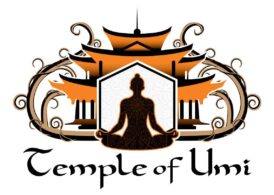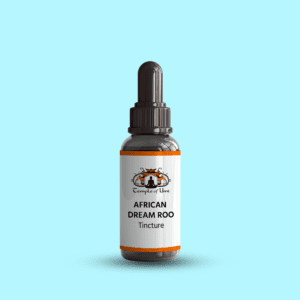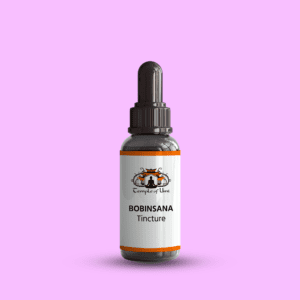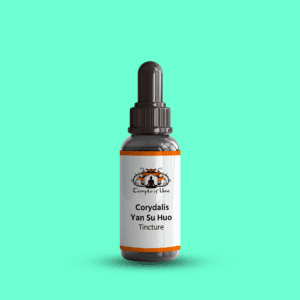Plant Medicine

By Temple of Umi

Table of Contents
Discover the ancient wisdom and modern science behind plant medicine. Learn how natural remedies can complement your health regimen and promote wellness.
Plant Medicine Explanation Introduction:
In the realm of healing and wellness, plant medicine stands as a testament to nature’s incredible bounty. This ancient practice, which taps into the therapeutic properties of plants, has been a cornerstone of human health care for thousands of years. From the lush rainforests to the humblest gardens, every leaf and root carries a potential remedy, honed by generations of traditional knowledge and now reaffirmed by modern science. The historical significance of plant medicine cannot be overstated; it has shaped the fabric of medical and cultural practices across civilizations.
We’ve witnessed a remarkable resurgence of interest in natural remedies in recent years. This revival is driven by a growing awareness of synthetic pharmaceuticals’ limitations and side effects, alongside a deeper understanding of and respect for traditional healing wisdom. People worldwide are now rediscovering the power of plant medicine, seeking more holistic and harmonious ways to nurture their health and well-being. Learn more.
Understanding Plant Medicine
Definition and Key Concepts
Plant medicine is the use of plants and their extracts to prevent, alleviate, or cure disease and maintain health. This broad definition encompasses a variety of practices and products, from herbal teas and tinctures to essential oils and beyond. Central to the concept of plant medicine is the belief in the intrinsic healing properties of plants, which can support the body’s healing processes.
The Science Behind Plant-Based Healing
The effectiveness of plant medicine is more than folklore; it’s grounded in the complex chemistry of plants. Phytochemicals, the active compounds found in herbs, have been shown to have various therapeutic effects, including anti-inflammatory, antimicrobial, and antioxidant properties. Modern scientific research continues to explore and validate the mechanisms through which these natural compounds exert their effects, often finding that traditional uses have a firm basis in pharmacology.
Differentiating Between Plant Medicine and Pharmaceuticals
While both plant medicine and pharmaceuticals aim to promote health and treat diseases, they differ significantly in their approach and philosophy. Plant medicine often uses whole plants or extracts in their natural form, leveraging the synergistic effects of the plant’s components. This holistic approach contrasts with the pharmaceutical industry’s focus on isolating and synthesizing individual active ingredients. Additionally, plant medicine emphasizes prevention and works harmoniously with the body’s natural processes, whereas pharmaceuticals often target specific symptoms or biological pathways. The distinction also extends to the side effect profile, with plant medicines typically offering a gentler, more balanced intervention.n

The Roots of Healing: Historical Overview
Ancient Practices and Cultures That Utilized Plant Medicine
The journey of plant medicine is as old as human civilization, with roots deeply embedded in the rich soil of ancient wisdom. Cultures across the globe have harnessed the power of the Earth’s flora to heal, protect, and nourish. The Egyptians, renowned for their advanced medical knowledge, meticulously documented herbal remedies on papyrus, utilizing plants like garlic and mint for their medicinal properties. Similarly, Ayurveda, an ancient Indian healing system, and Traditional Chinese Medicine (TCM) have emphasized botanicals‘ significance in maintaining balance and health. These practices highlight a universal reverence for the natural world as a source of healing and well-being.
Evolution of Plant Medicine Through the Ages
As centuries passed, the knowledge of plant medicine expanded, evolving with each generation. The Middle Ages in Europe saw the proliferation of herbals and detailed manuscripts describing the medicinal properties of various plants. This period they also marked the establishment of apothecaries, the predecessors of modern pharmacies, where herbal remedies were prepared and sold. The Renaissance renewed interest in scientific inquiry and natural history, further propelling the study of medicinal plants. Fast forward to the present, the principles of plant medicine continue to inform modern pharmacology, with many drugs being derived from plant compounds. This evolution from ancient remedies to contemporary medicines underscores the enduring legacy of plant medicine in human health.
Types of Plant Medicines and Their Uses
Herbal Remedies and Their Preparations
Herbal remedies stand at the forefront of plant medicine, offering myriad health benefits through various forms of preparation. These include:
- Teas and infusions are ideal for gently extracting a plant’s medicinal compounds.
- Tinctures and extracts, which use alcohol or water to concentrate the active ingredients, provide a more potent remedy.
- Capsules and powders offer a convenient way to consume medicinal herbs without tasting them.
Herbs like chamomile for relaxation, echinacea for immune support, and turmeric for its anti-inflammatory properties are just a few examples of how diverse and effective herbal remedies can be. Learn more.
Essential Oils and Aromatherapy
Essential oils are derived from the distillation of plants and capture the essence and therapeutic properties of botanicals. Aromatherapy utilizes these concentrated oils to improve physical and emotional well-being. Lavender oil, for instance, is widely recognized for its calming effects, while peppermint oil is celebrated for its ability to relieve headaches and digestive issues. Through inhalation or topical application, essential oils offer a direct pathway to harnessing the healing power of plants.
Alkaloids and Their Effects on the Human Body
Alkaloids are potent compounds found in plants that profoundly affect the human body. They are the active ingredients in many traditional remedies and modern medicines. For example, quinine, extracted from the bark of the Cinchona tree, has been used for centuries to treat malaria. Similarly, morphine, derived from the opium poppy, is a potent analgesic. Alkaloids work by interacting with the body’s cells and systems, often mimicking or influencing natural physiological processes.
Adaptogens and Their Role in Stress Reduction
Adaptogens are a special category of medicinal plants known for helping the body resist stressors. These herbs and roots have been used in Ayurvedic and Chinese medicine for centuries to improve the body’s stress response and support overall vitality. Examples include ashwagandha, which is said to reduce anxiety and stress, and rhodiola, which may improve endurance and mental performance. By normalizing physiological functions, adaptogens offer a holistic approach to mitigating stress and enhancing well-being.
Each of these types of plant medicine serves as a testament to the natural world’s vast potential to heal and nurture. From ancient practices to modern applications, the exploration of plant medicine continues to evolve, offering promising pathways to health and healing.
How Plant Medicine Works in the Body
The Physiological Impact of Plant Compounds
Plant medicine exerts its effects through a complex interplay of compounds that interact with the body’s biochemistry. These natural compounds, including alkaloids, glycosides, and flavonoids, can influence physiological processes in various ways. For instance, some plant compounds might mimic hormones or neurotransmitters, while others could block or activate specific receptors in the body, leading to therapeutic effects. The rich biochemical diversity of plants allows them to act on a wide range of bodily systems, from enhancing immune response to reducing inflammation and beyond.
Synergy in Plant Medicine: The Whole is Greater than the Sum of Its Parts
One of the most fascinating aspects of plant medicine is the concept of synergy. Unlike synthetic drugs, which usually contain a single active ingredient, plant medicine comprises multiple components that enhance healing effects and reduce toxicity. This synergistic action means the combined effect of plant compounds is often greater than what would be expected from their individual effects alone. This principle is the cornerstone of phytotherapy and emphasizes using whole plants or plant parts to maximize therapeutic benefits and minimize side effects.
Case Studies: Success Stories and Scientific Findings
- Turmeric in Inflammation and Pain Management: A notable success story is using turmeric, or Curcuma longa, to manage inflammation and pain. Curcumin, the active compound in turmeric, has been shown in numerous studies to have potent anti-inflammatory properties comparable to some pharmaceuticals without adverse side effects.
- St. John’s Wort for Depression: Another example is St. John’s Wort (Hypericum perforatum), which has been widely studied for its effectiveness in treating mild to moderate depression. Research has found it to be as effective as conventional antidepressants for certain patients, showcasing the potential of plant medicine in mental health care. Learn more.
Accessing and Utilizing Plant Medicine Safely
Guidelines for Selecting Quality Plant Medicine Products
- Source Reliability: Choose products from reputable manufacturers and suppliers who provide transparent information about sourcing, manufacturing processes, and quality testing.
- Certifications: Look for certifications or endorsements from recognized organizations that indicate the product meets specific standards of quality and safety.
- Ingredient List: Ensure the product contains pure plant extracts without unnecessary additives or fillers.
Dosage, Timing, and Method of Administration
- Follow Recommendations: Adhere to the recommended dosages on product labels or those provided by a healthcare professional.
- Timing: Some plant medicines are best taken on an empty stomach, while others may require food consumption to enhance absorption or reduce potential gastrointestinal discomfort.
- Administration Methods: The effectiveness of plant medicine can vary depending on the method of administration—whether as teas, tinctures, capsules, or topicals. Choose the method that ensures optimal absorption and convenience for your needs.
Understanding Contraindications and Potential Side Effects
- Be aware that even natural remedies can interact with conventional medications, potentially leading to adverse effects or diminished treatment efficacy.
- Side effects, though often less severe than those of synthetic drugs, can still occur, particularly with improper use or dosages.
Consulting Healthcare Professionals
- Always consult a healthcare professional before integrating plant medicine into your health regimen, especially if you have existing health conditions or are taking other medications. This is crucial for avoiding harmful interactions and ensuring the safe use of plant medicines.
Accessing and utilizing plant medicine safely requires informed choices and an understanding of how these natural remedies interact with the body. By adhering to guidelines for quality, dosage, and safe use and consulting healthcare professionals, individuals can harness the benefits of plant medicine effectively and safely.
Plant Medicine in Modern Healthcare
In the realm of health and wellness, the intersection of traditional wisdom and modern scientific inquiry opens up a fascinating chapter on plant medicine. Once relegated to the fringes of healthcare, this ancient practice is now gaining recognition for its valuable role in modern medicine. Let’s explore how this integration is unfolding and its promising prospects.
Integrating Traditional and Modern Medicine Practices
- The collaboration between traditional plant medicine and contemporary medical practices is fostering a more holistic approach to healthcare. Hospitals and clinics increasingly incorporate plant-based treatments, recognizing their potential to complement conventional therapies.
- Medical professionals are now receiving training in herbal medicine, enabling them to offer patients a broader spectrum of care options. This blend of old and new knowledge empowers practitioners to tailor treatments to individual needs, optimizing patient outcomes.
The Role of Plant Medicine in Preventive Care
- Preventive care is paramount in the shift towards a more sustainable and proactive healthcare model. Plant medicine is crucial here, offering natural ways to strengthen the body’s defenses and prevent illness.
- Plant-based compounds, from adaptogens that enhance stress resilience to antioxidants that combat oxidative stress, are effective allies in maintaining health and preventing disease.
Current Research and Future Prospects
- Scientific research into plant medicine is flourishing, with studies validating the efficacy of various herbs and plant compounds. This research illuminates how these natural remedies work and paves the way for new therapeutic applications.
- Looking ahead, the integration of technology and plant medicine, such as through the development of precision herbal treatments, holds exciting potential. The future promises even more personalized and effective plant-based healthcare solutions firmly rooted in scientific evidence.

Final words: Embracing the Green Pharmacy
The journey through the landscape of plant medicine reveals a world rich with healing potential. As we’ve explored, integrating this ancient practice into modern healthcare is not just a nod to tradition but a forward-thinking move towards a more holistic, preventive, and personalized medicine.
Summarizing the Benefits and Importance of Plant Medicine
- Plant medicine offers a treasure trove of therapeutic benefits, from alleviating symptoms and treating diseases to boosting overall wellness. Its importance lies not only in its effectiveness but also in its ability to work in harmony with the body’s natural processes.
Encouraging Informed and Conscious Use of Plant Remedies
- As we embrace the green pharmacy, it’s crucial to do so with knowledge and respect. Educating ourselves about plant-based treatments’ uses, benefits, and potential risks ensures their safe and practical application. Always consult healthcare professionals when incorporating plant medicine into your health regimen.
The Future of Plant Medicine and Its Place in Holistic Health
- The evolving landscape of healthcare suggests a bright future for plant medicine. As research expands our understanding and technology enhances its application, plant-based therapies are set to become an integral part of a holistic health paradigm. This shift promises better health outcomes and a deeper connection with the natural world.
Learn more about Plant medicine
What is Ayahuasca?Embark on a Journey of Transformation with Spiritual HealingUnveiling Healing Energy at the Temple of Umi10 Energy Healing Techniques to Transform Your LifeWhere to get Ayahuasca in the USATop Ayahuasca retreats in the USA. Learn more.Cost of Ayahuasca Retreat: Balancing Cost and Experience. Learn more.What is trauma bonding?A Journey into the Healing Properties of Psychedelic Mushrooms. Learn more.Ayahuasca Retreat Georgia – Experience Spiritual AwakeningSpiritual Retreats GeorgiaShaman in America Exploration
- Sacred Plant Medicine Retreats in Georgia
- 5 Ayahuasca Retreats in California Worth Exploring
- 7 Best Aya Retreats in America. Click here.
- Mcdonough Ayahuasca retreat
- Conley Ayahuasca retreat
- Whitesburg Ayahuasca retreat
- Brooks Ayahuasca retreat
- Gay Ayahuasca retreat
- Williamson Ayahuasca retreat
- Orchard Hill Ayahuasca retreat
- Glenn Ayahuasca retreat
- Luthersville Ayahuasca retreat
- Shady Dale Ayahuasca retreat
- Bowdon Junction Ayahuasca retreat
- Sargent Ayahuasca retreat
- Greenville Ayahuasca retreat
- Lovejoy Ayahuasca retreat
- Winston Ayahuasca retreat
- Rutledge Ayahuasca retreat
- Moreland Ayahuasca retreat
- Molena Ayahuasca retreat
- Lebanon Ayahuasca retreat
- Good Hope Ayahuasca retreat
- Haralson Ayahuasca retreat
- An Inclusive List of Psychedelic Quotes
- Mount Ayahuasca retreat
- Grantville Ayahuasca retreat
- Pine Lake Retreat near
- Rydal Ayahuasca retreat
- Porterdale Ayahuasca retreat
- Waco Ayahuasca retreat
- Temple Ayahuasca retreat
- Bethlehem Ayahuasca retreat
- Jenkinsburg Ayahuasca retreat
- Adairsville Ayahuasca retreat
- Red Oak Ayahuasca retreat
- Woodbury Ayahuasca retreat
- Cassville Ayahuasca retreat
- Redan Ayahuasca retreat
- North Decatur Ayahuasca retreat
- Grantville Ayahuasca retreat
- Hillsboro Ayahuasca retreat
- Jackson Ayahuasca retreat
- Braselton Ayahuasca retreat
- Zebulon Ayahuasca retreat
- Flovilla Ayahuasca retreat
- Auburn Ayahuasca retreat
- Warm Springs Ayahuasca retreat
- Scottdale Ayahuasca retreat
- Lithia Springs Ayahuasca retreat
- Villa Rica Ayahuasca retreat
- Grayson Ayahuasca retreat
- Sunny Side Ayahuasca retreat
- Senoia Ayahuasca retreat
- Locust Grove Ayahuasca retreat
- Chamblee Ayahuasca retreat
- Fairburn Ayahuasca retreat
- Snellville Ayahuasca retreat
- Monticello Ayahuasca retreat
- Union City Ayahuasca retreat
- Tallapoosa Ayahuasca retreat
- Bremen Ayahuasca retreat
- Hampton Ayahuasca retreat
- Monroe Ayahuasca retreat
- Marble Hill Ayahuasca retreat
- Madison Ayahuasca retreat
- Dawsonville Ayahuasca retreat
- Felton Ayahuasca retreat
- Concord Ayahuasca retreat
- Mansfield Ayahuasca retreat
- Taylorsville Ayahuasca retreat
- Roopville Ayahuasca retreat
- Turin Ayahuasca retreat
- Franklin Ayahuasca retreat
- Clarkdale Ayahuasca retreat
- Talking Rock Ayahuasca retreat
- Jersey Ayahuasca retreat
- Kingston Ayahuasca retreat
- Bostwick Ayahuasca retreat
- North Metro Ayahuasca retreat
- Meansville Ayahuasca retreat
- Social Circle Ayahuasca retreat
- White Ayahuasca retreat
- Rhode Island Ayahuasca retreat
- Maryland Ayahuasca retreat
- Delaware Ayahuasca retreat
- New Jersey Ayahuasca retreat
- Connecticut Ayahuasca retreat
- Massachusetts Ayahuasca retreat
- Hampshire Ayahuasca retreat
- Pennsylvania Ayahuasca retreat
- New York Ayahuasca retreat
- Florida Ayahuasca retreat
- South Carolina Ayahuasca Retreat
- North Carolina Ayahuasca Retreat
- West West Virginia Ayahuasca retreat
- Virginia Ayahuasca retreat
- Ohio Ayahuasca retreat
- Alabama Ayahuasca retreat
- Mississippi Ayahuasca retreat
- Tennessee Ayahuasca retreat
- Kentucky Ayahuasca retreat
- IndianaAyahuasca retreat
- ILLINOIS Ayahuasca retreat
- Missouri Ayahuasca retreat
- Arkansas Ayahuasca retreat
- Louisiana Ayahuasca retreat
- Texas Ayahuasca retreat
- Oklahoma Ayahuasca retreat
- KansasAyahuasca retreat
- Ayahuasca retreats near me in Experiment.
- A wellness retreat in Georgia
- What is Ayahuasca?
- Embark on a Journey of Transformation with Spiritual Healing
- Unveiling Healing Energy at the Temple of Umi
- 10 Energy Healing Techniques to Transform Your Life
- Where to get Ayahuasca in the USA
- Top Ayahuasca retreats in the USA. Learn more.
- Cost of Ayahuasca Retreat: Balancing Cost and Experience. Learn more.
- What is trauma bonding?
- A Journey into the Healing Properties of Psychedelic Mushrooms. Learn more.
- Ayahuasca Retreat Georgia – Experience Spiritual Awakening
- Spiritual Retreats Georgia
- Shaman in America Exploration
- Shamanism – Shamanic healing
- Shaman Healing Guide
- Ayahuasca ceremonies Ayahuasca ceremonies near you in the USA
- Ayahuasca Experience
- DMT Journey, Benefits, and Side Effects
- Iowaska – What is it?
- Plant medicine retreats in Georgia
- Why massage is beneficial, according to a cardiologist.
- Are mushrooms truffles – What Is a Truffle?
- 11 Best Ayahuasca Retreats in the USA for Spiritual Healing
- What is Rapé?
- What is a Tincture?
- Where to find Ayahuasca near me
- Healing retreats USA
- Best Retreats USA









